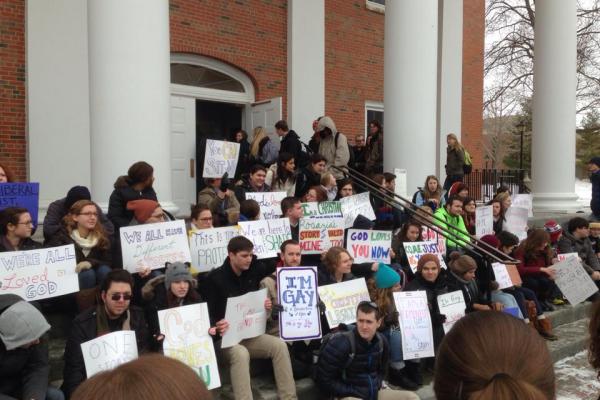We may not all be rich. We don’t all have successful careers. We aren’t all healthy. But the one thing we all have are stories. From the beginning of time, we have thrived on connecting via stories. We consume stories for leisure, speak our stories for sanity, and create stories to capture our imagination.
We are swayed by stories. Stories can compel others in ways propositions and facts statements cannot. Our attention wanes at statistics and exegesis, but perks at vivid characters in an engaging plot. Stories have been proven to be an effective rhetorical device. They draw people’s attention in and leaves them satisfied upon conclusion.
You cannot debate a story. While it may be tempting to try and deconstruct the reasoning behind stories when it goes against your agenda, the genius of stories is that it can’t be used as an argument. The story of a chain smoker’s longevity sits uncomfortably in the presence of someone advocating the ills of nicotine. The story just is. We cannot alter it, the only thing we can control is how we choose to respond to it. Any attempts to dishonor or discredit someone’s story is an assault to their humanity.
Despite our best efforts, we’ve somehow missed it.
Even in the midst of our generous financial donations, volunteer hours, mission trips, and letter writing, we’ve failed to see what should have been glaringly obvious: the global poor lack the most basic ingredient for forward progression — personal security.
In their recently released book, The Locust Effect, Gary Haugen (founder of the International Justice Mission), and Victor Boutros (federal prosecutor with the U.S. Department of Justice) convincingly argue that all our best work to eradicate poverty — even while worthwhile, helpful, and well-intended — is for naught unless we concurrently address the epidemic of violence and fear facing the poor in the developing world. They write:
"...the forces of predatory violence will not simply go away... On the contrary, if the forces of violence are not restrained, it is the hope of the poor that will just keep going away...and there is nothing that our programs for feeding, teaching, housing, employing, and empowering the poor will be able to do about it."
“Be perfect, therefore, as your heavenly Father is perfect” (Matthew 5:48). Seriously, Jesus? Have you even met some of us? Have you seen the depths of our jealousies, the breadth of our greed? Have you noticed how insatiable our egos are? How deeply insecure we all are?
Perfect?
You cannot mean what you seem to mean.
What then do we do with this seemingly impossible call? For many of us, this is one of those passages in the Bible we seek to explain away. Jesus can’t possibly mean what he says here. We reckon that he must be calling us merely to aspire to perfection. Or we conclude that in calling us to perfection, we realize how very far we are from it and thus lean on God’s grace. But certainly, absolutely, without a doubt, Jesus cannot be calling us to be perfect like God is perfect.
Right?
As Christians, we’ve been taught to follow the commands written in the Bible, but it’s easy to pick and choose which verses we want to follow, and we tailor ‘holiness’ according to our particular comforts and cultural preferences.
For example, there are hundreds of verses, stories, and illustrations in the Bible that talk about giving abundantly to the poor, being absurdly generous with our resources, and not idolizing money, and yet we have a tendency to focus on the few verses that mention being ‘good stewards’ of our money (Prov. 10:4-5; 13:22).
1 Tim. 5:8 says: But if anyone does not provide for his relatives, and especially for members of his household, he has denied the faith and is worse than an unbeliever.
Phew! This verse is all we need. It provides an opportunity for us to succumb to society’s expectations under the false pretense of being righteous — it’s a Biblical escape clause.
We search for these texts and treat them like precious treasures because they accommodate our lifestyle and help us rationalize our action (or inaction) — but we often rip them out of the larger context and disregard God’s greater intention.
Much of Jesus’s ministry centers on reconciling relationships, forgiving — and loving — enemies (Matt: 5:43-48), empathizing with those who we don’t normally understand (Philippians 2:3-4, John 8:1-11; Matt. 19:14; John 4) and loving others (John 13:34; 1 John 4:19-21). It’s hard to deny these truths, but when reality hits and we encounter those we dislike, we rely on verses that warn against bad company (1 Cor. 15:33; Prov. 13:20; Psalm 1:1) and spending time with evildoers. It’s easier to fall back on these verses than it is to recognize the ones calling us to wholeheartedly love others.



